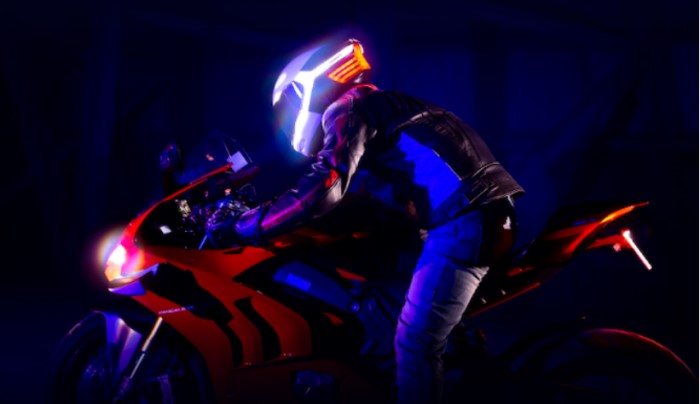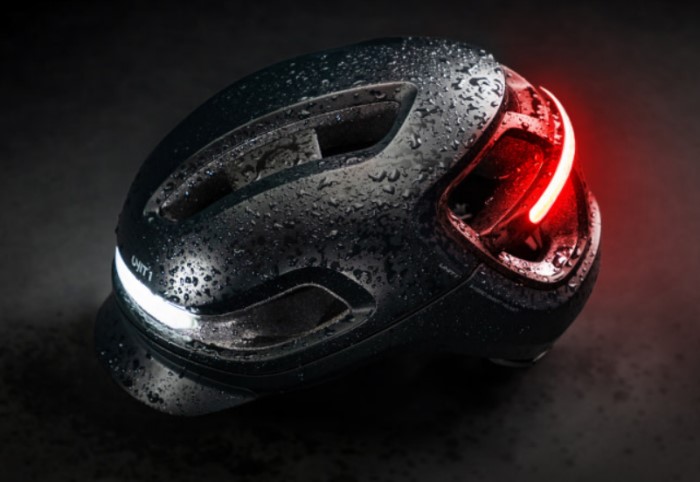Motorcycles are pretty cool.
They can also be pretty dangerous. Traveling at high speeds with no seatbelts or doors means that safety gear is extremely important. Especially helmets.
For a long time, the most important innovation in a motorcycle helmet was trying to make it as lightweight as possible while still keeping it strong enough to protect the rider's head. But now, a new generation of smart helmets is adding to what riders can expect from their gear.
An example of this is the iT-C Smart Helmet. Made by a company called Tali and expected to be available next May, it is full of gadgets and features that show how much tech is changing things that had remained pretty much the same for decades. And how tech can maybe even make motorcycles safer, too.
Turn on the lights

The helmet has a bunch of features to keep riders connected to others, even in case of emergencies. (Tali Connected)
A striking part of this helmet is the lights, which wrap all the way around it.
On the back are big, bold red brake lights to indicate when the bike is slowing down. (How does it know to do this? The helmet is connected to the bike using Bluetooth!) There are also lights that wrap around each side that flash when the rider is making a turn. This just helps to make the bike and its movements stick out more to other drivers.
The helmet's visor is also able to quickly adjust to change. From blinding sunlight to sudden cloud cover to nightfall, it makes sure that what the biker sees is crystal clear.
Stay connected

That is one flashy helmet! (Tali Connected)
But the best part of the helmet is its communication features. Remember that Bluetooth connection? You can use it to take hands-free calls to check in with loved ones, or talk walkie-talkie style with another rider up to a mile away. The helmet is also linked to a GPS system (satellite locator) and can also connect with a phone to give the rider verbal directions.
Maybe the most important feature though it that it can sense whether an accident has occurred and can call 911 all on its own to get aid to the rider pronto. What a great idea!
Ultimately, this smart helmet is one of many examples of how tech is used in all sorts of everyday gadgets. So what do you think? Are these just flashy toys? Or do they really improve things? What kind of everyday device would you like to see become 'smart'?
 This new smart helmet is more than just cool looking safety equipment. (Tali Connected)
This new smart helmet is more than just cool looking safety equipment. (Tali Connected)









